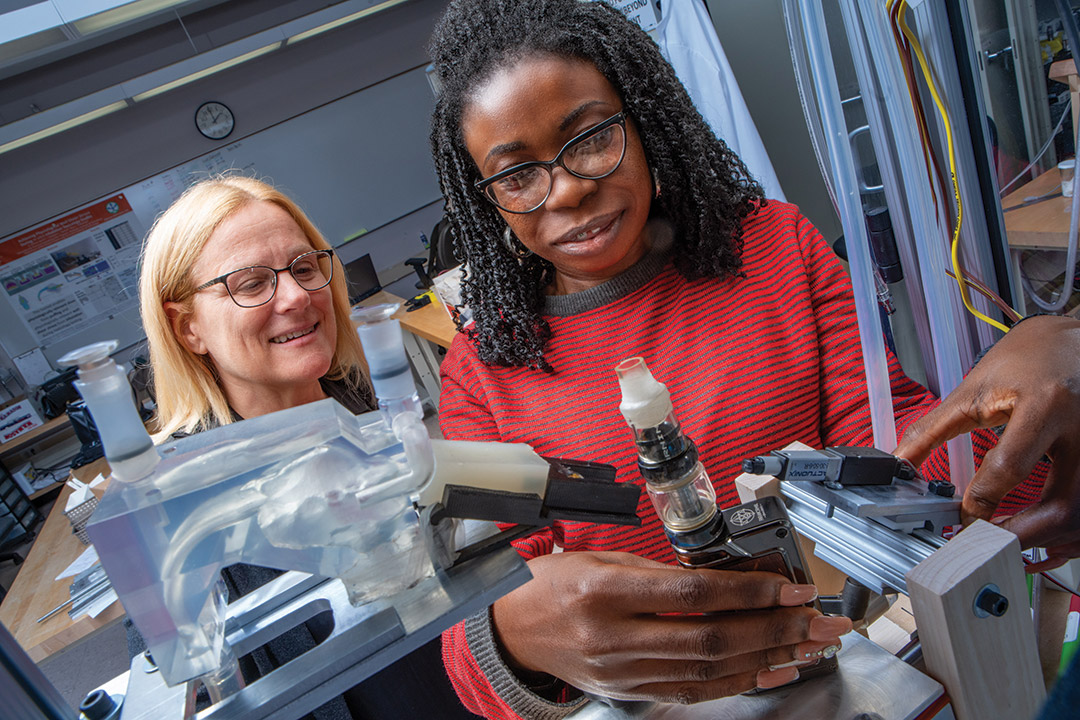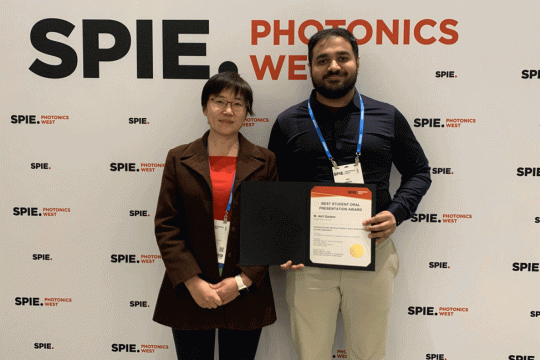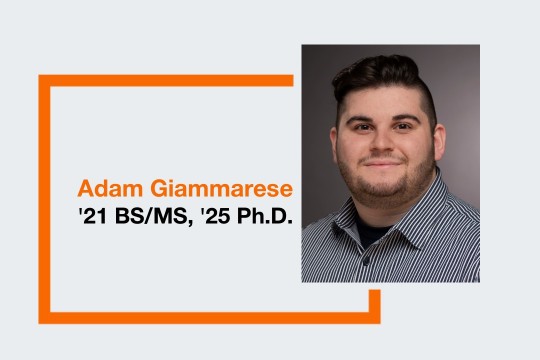Team’s research method becomes industry model
Scott Hamilton
Risa Robinson, head of the Department of Mechanical Engineering, left, works in the Respiratory Technologies Laboratory with Ph.D. student Gloria Mbaka. Robinson’s team will move into a new two-story research building that is expected to open this fall.
Risa Robinson ’89 (mechanical engineering), ’95 MS (imaging science) and members of the Respiratory Technologies Laboratory found moderate toxicity rates in e-cigarette liquids but also saw that e-cigarette users consumed more to compensate for the lower nicotine hit—making them as risky for some users as traditional cigarettes.
Her work completely shifted how this analysis was done and became an industry model of how to assess usage in an individual’s own environment. Through this new viewpoint, the team recorded harmful emissions that were not otherwise seen in a lab setting, and this distinct data contributed to FDA policies and regulations about e-cigarette usage today.
“We needed to measure how the person smokes, or how they vape. In labs, we have very regimented protocols. But a person doesn’t smoke like a robot in a lab,” said Robinson, head of the Department of Mechanical Engineering in RIT’s Kate Gleason College of Engineering and an appointee to the FDA’s Tobacco Products Scientific Advisory Committee in 2021.
Prior research involved testing smoking products on machines in labs. Robinson’s team built new, original equipment—wireless personal use monitors—that attach to e-cigarette devices and record digital signals such as puff volume, flow rate, and fluid intake. Users vaped at home, at work, or out socially, and the equipment recorded far more accurate data based on these behaviors, making for more authentic user profiles.
“It is important to understand that because we are trying to regulate a product. You can’t regulate psychology,” said Robinson. “But if we can understand the psychology, that can help us inform the regulation.”
Robinson’s projects have grown in scope since she began this research in early 2000, expanding her work as e-cigarettes grew in popularity. More than 2 million middle- and high-school students reported using e-cigarettes in 2023, according to the Centers for Disease Control and Prevention. Use of tobacco products—in any form—is unsafe, the CDC reports.
Beyond technical aspects of the research, understanding behaviors plays a role in addiction and cessation. To this end, Robinson and Edward Hensel, associate dean for research in the Kate Gleason College, are working on new projects with Nathan Eddingsaas, associate professor in the School of Chemistry and Materials Science, and Stephanie Godleski, associate professor in the Department of Psychology. The multidisciplinary approach integrates technical information with behavioral elements—how users select and mix e-liquids— and considers the chemical make- up of the products to indicate overall harmful exposure.
Robinson and her team will move into a new 39,200-square- foot research building that is expected to open this fall. The two-story building will help accommodate RIT’s expanding research footprint in science, computing, and engineering.
RIT reached another record year in sponsored research awards, attaining more than $94 million in fiscal year 2022-2023.








